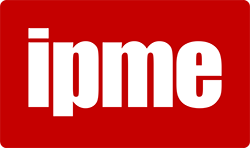Shipping container structures are growing in popularity, and that often means new rules and codes need to come into play. Some people use these industrial containers for storage, while some transform them into residential spaces or commercial businesses. Understanding shipping container building permits and codes is complicated because many of these rules are new and fluctuating. Here are a few things to keep in mind when trying to ensure that your shipping container structure is up to legal standards.
Getting Proper Permits
The first thing to know about shipping container structures is that the rules vary from place to place, so it’s always a good idea to check for any state or county legal requirements before seeking a permit. However, there is some information that you can compile to make the process go more smoothly. For starters, is your structure a residence, commercial business, or storage unit? In addition, different types of structures have different rules, so getting one type of permit over another in your region may be more feasible.
Common Housing Requirements
A big part of understanding shipping container building permits and codes is knowing what you’re allowed to do from a legal standard. For example, many states view shipping container homes as property rather than proper real estate, so even if you own your land, it may be difficult to set up a shipping container home as a residence. You may also need to clear any potential new home with a homeowner’s association (HOA) or the International Residential Code (IRC).
Establishing a shipping container home as a legal residence is one of the most challenging things right now because the concept is so new. Hopefully, new laws will make it easier for homeowners to establish residences on their land. States that are more lenient on container homes include Alaska, Tennessee, Louisiana, Oregon, and Missouri.
Commercial Business Requirements
In the same way that shipping container houses must adhere to the IRC, businesses often follow the International Building Code (IBC). Establishing a shipping container commercial structure may vary depending on factors like your location or if you intend to be a temporary or permanent fixture. Commercial container buildings must still adhere to local and federal laws regarding things like accessibility and established fire exits.
For more information on creating, designing, and producing a shipping container structure of your own, International Port Management Enterprise is here to help. Whether you need a shipping container studio or want to design an entire shopping community, repurposed containers have endless possibilities. If you have any additional questions, comments, or concerns, don’t hesitate to contact us anytime, and we’d be happy to tell you about what we have to offer.

